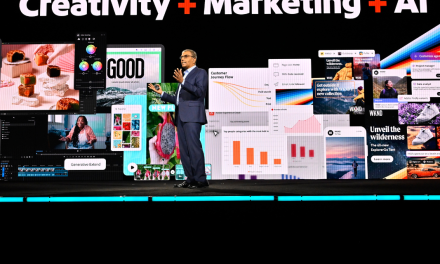Here’s why marketing strategies need to rely on real-time data to keep up with ever-changing consumer trends.
Surprisingly, it is a common misconception that consumer research is rather unimportant and assumed as a luxury than a necessity to businesses. So much so that companies’ reluctance in spending time on consumer research led to less than 40% of the marketers employing this service to drive their marketing decisions. Obviously, consumer research should be the foundation of every business, and this is even more pertinent in today’s climate where consumers are no longer convinced by mass marketing approaches.
In the 4.0 era, consumers are surrounded by razor-sharp tailored campaigns and hence, companies need to better understand their consumers to curate a niche or unique selling proposition for their products or brand.
Yet, how impactful will research be from three or four months ago as compared to immediate insights on consumers’ interests? Immediacy is paramount for companies spending millions on digital campaigns to adapt to constantly evolving consumer trends.
After nearly three years of unprecedented disruption and a constant state of uncertainty, technology-driven consumer research and digitisation have ranked top in company priorities.
Understanding ever-evolving consumer trends
Regardless of the unpredictability of the next 12 to 24 months, consumers will certainly not revert to their exact behaviour in 2019. For some, they have resumed their pre-pandemic habits in the past few weeks. Perhaps they have gone back to watching a movie in the theatre or flying away for the first time in a year. But returning to “normal” will not be the same for everyone.
Some of those changes could be anticipated, however, others are quite shocking: bread-baking becoming a phenomenon among millennials, pet ownership skyrocketing to the current state, and the same people being willing to spend more on their new pets than their daily Starbucks expenditure.
Therefore, many of those companies that were desperately searching for growth 18 months ago now face the opposite problem. Their supply chains cannot keep up with the demands. The big question for them is which of those consumer behaviours will persist and last after the pandemic?

CEO and Co-founder of Vase.ai
What is consumer research and why is it so important?
Consumer research is a broad term that covers the collection and analysis of data about and from consumers. Simply, it is talking to “real people” and getting to know the customer to understand their opinions, attitudes, behaviours and needs. This can range from large-scale online studies that provide robust, statistically valid data-based insights to face-to-face interviews, workshops and focus groups that grant the in-depth exploration of themes which are more abstract or complex.
Consumer research entails information on the development of customer strategies, marketing activities, products and propositions, branding, advertising and communications – anything which requires a “touchpoint” with the consumers.
Projects can be ad-hoc to answer a specific question, or bespoke programmes of research to track trends and changes in the long run. Notably, industry experts may become biased or over-informed that they forget to check in with real-world consumers. Businesses may get carried away by strategies that do not cater to the consumer’s demands.
For instance, take a look at the (almost) official Amazon move into the UK insurance market. Research suggests that consumers welcome such a move, indicating their high possibility of success regardless of the failures faced by several big brands previously.
The time spent understanding the consumers can help avoid costly mistakes driven by ignorance or false assumptions. Businesses have increasingly realised the importance of a customer-centric ethos as they gain a more comprehensive view of their market – how their businesses fare as compared to their competitors from the consumer’s perspective – to strengthen and develop the brand’s stronger sense of identity and position in the marketplace.
The best way for professional marketers to plan their next steps
One of the best sources of insights is businesses’ online channel partners and D2C sites. Companies should use data mining to get a quick understanding of the consumers’ thoughts by using advanced analytical tools to look at ratings and reviews, and spot trends on various popular platforms such as Shopee.
Products can be efficiently tested on an online platform and be adjusted accordingly. Traditional consumer research is becoming less relevant or reliable as marketers cannot predict their changes in preferences. Hence, always track the data from e-commerce websites and observe other companies to learn about their strategy in using D2C and online-sales platforms.
Once again, one of the most important aspects of understanding your consumers is to directly ask them questions. This will help you know what their demands and concerns are, which comes hand-in-hand with your planning for the next product or content. Notably, suppose you don’t have an expert to conduct such research on the consumers. In that case, you can always use self-service research platforms which aims to help businesses make better strategic decisions by delivering extensive insights into consumer behaviour in just 24 hours.



















